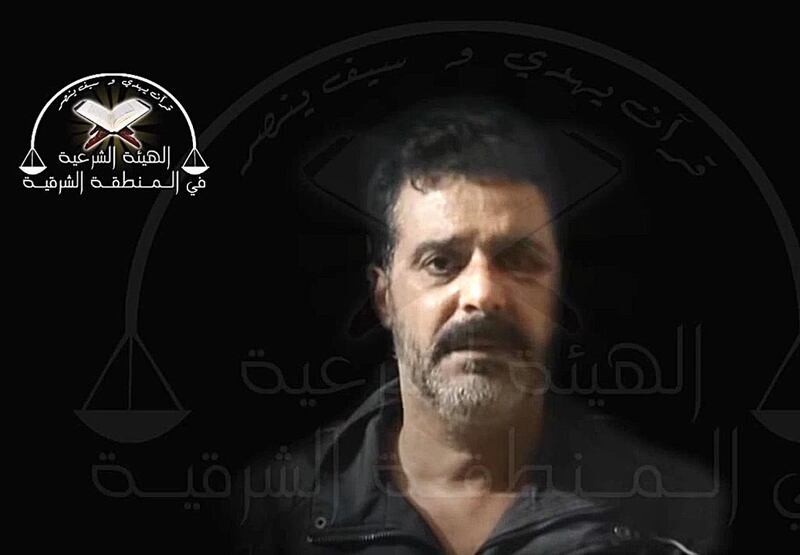Amman // For the past week a damaging rift has pushed moderate rebels and Jabhat Al Nusra to the brink of an internecine war on Syria’s southern front.
That much-feared conflict, echoing the rebel-on-rebel violence in northern Syria that has so damaged their cause to defeat President Bashar Al Assad, now seems to have been averted.
By early Monday, mediation efforts between Al Nusra and the Free Syrian Army (FSA) collapsed but, rather than signalling the start of a fight, the breakdown of negotiations brought an uneasy peace.
During the mediation process, the FSA and Al Nusra were locked in a staring contest, seeing who would blink first. In the end, it was the FSA that looked away.
It is hard to see how the outcome is anything other than an embarrassing climbdown for the FSA. Which is not to say its decision was necessarily the wrong thing to do, but rather an acknowledgement that an emboldened Al Nusra had comfortably outmanoeuvred its moderate rivals throughout the affair.
In a statement on Monday announcing the failure of talks over the fate of Ahmed Nehmeh, an FSA colonel captured by Al Nusra last Saturday and accused of treason, 60 FSA brigades said they were suspending cooperation with the Al Qaeda-affiliated faction.
In itself, that is something of a humiliation. It has been a poorly kept, dirty secret of the FSA that it works with Al Nusra, sharing planning, intelligence and even weapons in their fight against regime forces in southern Syria.
The FSA’s narrative in the south has been to emphasise its moderation, in part to secure weapons, cash and training from the western and Arabian Gulf states that have given them cautious, equivocal support, but which do not want to become a supply chain for Al Qaeda.
Similarly, moderate rebels have long been at pains to stress Al Nusra’s weakness in the south; that it is less a junior partner in the war against Syria’s brutal regime and more a mere bit player with little influence.
The arrest of Col Nehmeh and events since then have demolished that story. Al Nusra has firmly announced its presence and power in the south, and its position as equals at the same table as the FSA. The FSA has, willingly or not, now acknowledged that.
Col Nehmeh, a senior if far from universally admired FSA officer and ally of foreign intelligence agencies, was taken by Al Nusra shortly after criticising them, somewhat obliquely, by saying there was no room in the war for groups that want to behead their enemies.
FSA groups responded with dire warnings to Al Nusra, and some units even began to mobilise for an assault on a Nusra headquarters.
But, in the end, nothing happened. Instead, the FSA sought to defuse the situation with negotiations. That may have been a sensible way of averting fratricide but, according to rebel sources familiar with the talks, the mediation efforts themselves were a slap in the face of the FSA.
Al Nusra refused any compromise and, instead, merely set terms for the treatment of Col Nehmeh, insisting he stand trial for treason in a court made up of Nusra members and other hardline Islamist groups.
The FSA first agreed to Col Nehmeh facing a trial but asked that he be handed to an FSA-affiliated court, in accordance with a gentlemen’s agreement that had held until then: Al Nusra punishes its own, the FSA punishes its own.
After that option was rejected a proposal was made for a joint tribunal for Col Nehmeh, with Al Nusra members sitting in judgement alongside FSA officers and independent judges. Again, Al Nusra dismissed the idea.
In their statement, the 60 FSA units stressed they did not acknowledge Al Nusra’s right to hold its commanders to account. In practice however, Al Nusra is doing just that.
If the FSA does stop cooperating with Al Nusra, they will both be weaker and less effective militarily than they were. Al Nusra benefited from fighting alongside the FSA, just as the FSA benefited from Al Nusra’s support.
The new disunity will please regime forces, which have consistently reaped the rewards of rebel dissonance.
The uneasy peace reigning between Al Nusra and the FSA is just that; fragile and uncomfortable. There is a cold war between them now, one that may turn hot.
Just because they have not turned their guns on each other does not mean the shooting will not start. There have already been limited clashes in Nawa between Al Nusra and the FSA, with fighters on both sides killed on Thursday. That fighting has not spread, at least not yet.
The full consequences of the Col Nehmeh crisis on the southern front have far from played out, but, for now, it seems to have shifted the rebels’ centre of gravity away from moderates and towards Al Nusra. Al Qaeda is rising on the southern front.
psands@thenational.ae





